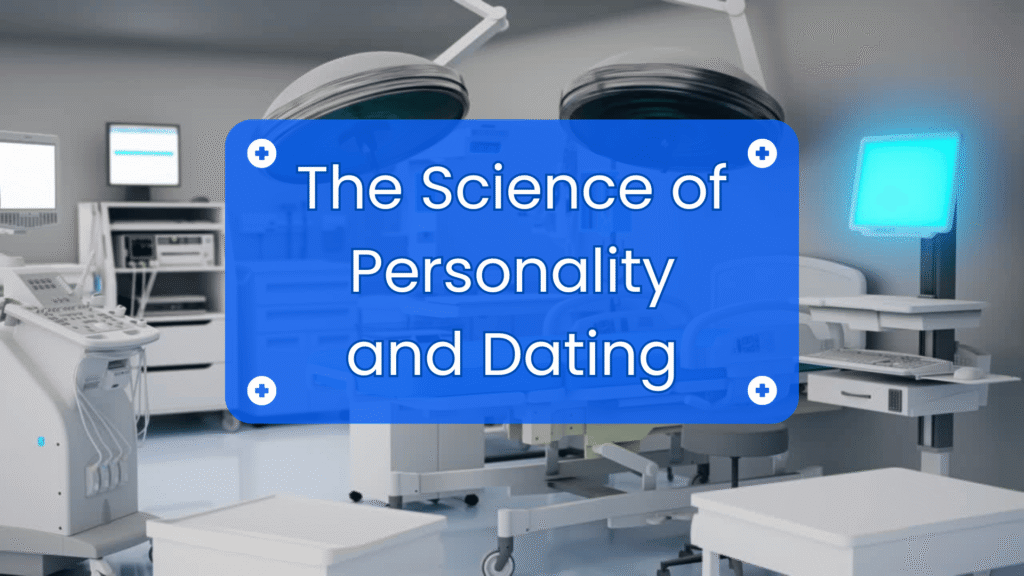Articles, Relationships
The Science of Personality and Dating
In the intricate dance of romantic relationships, personality plays a pivotal role in determining compatibility, attraction, and long-term satisfaction.
Understanding how various personality traits interact can provide valuable insights into the dynamics of dating and help individuals foster more fulfilling connections.
The Big Five Personality Traits and Romantic Relationships
Psychologists often refer to the Big Five personality traits—Openness, Conscientiousness, Extraversion, Agreeableness, and Neuroticism—to describe human personality. These traits significantly influence romantic interactions:
- Openness: Imaginative and open to new experiences. Often drawn to partners who share curiosity and creativity.
- Conscientiousness: Organized and dependable. Value structure and stability in a partner.
- Extraversion: Sociable and energetic. Seek out partners who enjoy engaging in social environments.
- Agreeableness: Compassionate and cooperative. Look for empathetic partners who foster harmony.
- Neuroticism: Emotionally sensitive. Benefit from emotionally intelligent and supportive partners.
Research from the Journal of Personality and Social Psychology shows that couples with similar levels of agreeableness and conscientiousness report higher relationship satisfaction.
The Role of Similarity and Complementarity
Psychological research supports both similarity and complementarity. While shared values and personality traits often predict satisfaction, complementary differences can also be enriching. A study of 171 speed-dating sessions found that people were most attracted to those who displayed traits they personally valued—like kindness and intelligence—even if those traits differed from their own.
The Impact of Narcissism on Dating
Narcissism, marked by arrogance, a need for admiration, and lack of empathy, can disrupt healthy relationships. Time Magazine emphasizes that setting firm boundaries is crucial when dealing with narcissistic individuals. While change is difficult, understanding these traits can help individuals protect their emotional well-being.
Gender Differences in Personality and Dating Preferences
Men and women often prioritize different traits in partners. Research from Personality and Individual Differences explored “the ick”—a sudden feeling of repulsion. Women were often turned off by behavior they perceived as either overly feminine or misogynistic, while men cited appearance or mismatched interests.
Further, a study reported in The Times found women to be 40% more generous than men in certain scenarios, suggesting traits like agreeableness and openness may influence generosity within relationships.
The Influence of Birth Order on Personality and Relationships
Birth order can influence personality traits and dating dynamics. Here’s a general overview:
- Firstborns: Responsible and structured; often pair well with fun-loving lastborns.
- Middle Children: Adaptable but may struggle when paired with another middle child due to communication patterns.
- Lastborns: Free-spirited and sociable; compatible with structured partners but may clash with other lastborns.
- Only Children: Independent and ambitious; work well with firstborns or lastborns, but not always with another only child.
Utilizing Personality Assessments in Modern Dating
With the rise of dating apps and digital tools, personality assessments have become a popular method for gauging compatibility. A 2021 survey revealed that 68% of singles used personality tests like the Myers-Briggs Type Indicator (MBTI) and the Big Five Inventory to guide their dating choices.
These tools help individuals better understand communication styles, emotional needs, and potential points of friction—leading to more informed and intentional dating.
Conclusion
Personality traits play a significant role in how people date, connect, and stay together. By understanding your own traits and those of potential partners, you can foster more meaningful connections. Whether through shared values or balanced differences, relationships thrive on self-awareness, emotional intelligence, and mutual growth.

